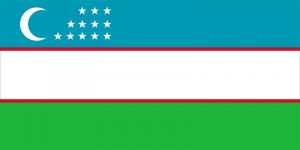Difference between revisions of "Language/Southern-uzbek/Grammar/Questions"
m (Quick edit) |
m (Quick edit) |
||
| Line 55: | Line 55: | ||
We have now looked at the different types of questions and the grammar rules that govern them in Southern Uzbek. With this knowledge, you should now be able to ask questions in Southern Uzbek with confidence. | We have now looked at the different types of questions and the grammar rules that govern them in Southern Uzbek. With this knowledge, you should now be able to ask questions in Southern Uzbek with confidence. | ||
<br><hr>If you have any questions, please ask them in the comments section below.<br>Feel free to edit this wiki page if you think it can be improved. 😎 | <br><hr>If you have any questions, please ask them in the comments section below.<br>Feel free to edit this wiki page if you think it can be improved. 😎 | ||
==Related Lessons== | |||
* [[Language/Southern-uzbek/Grammar/Pronouns|Pronouns]] | |||
* [[Language/Southern-uzbek/Grammar/Plurals|Plurals]] | |||
* [[Language/Southern-uzbek/Grammar/Adjectives|Adjectives]] | |||
* [[Language/Southern-uzbek/Grammar/Negation|Negation]] | |||
* [[Language/Southern-uzbek/Grammar/Future-Tense|Future Tense]] | |||
* [[Language/Southern-uzbek/Grammar/Conditional-Mood|Conditional Mood]] | |||
{{Southern-uzbek-Page-Bottom}} | {{Southern-uzbek-Page-Bottom}} | ||
Revision as of 22:54, 25 February 2023
Hi Southern Uzbek learners! 😊
In today's lesson, we will be discussing how to ask questions in Southern Uzbek. Asking questions is an important part of any language, and Southern Uzbek is no exception. We will look at the different types of questions, as well as the grammar rules that govern them. By the end of this lesson, you should have a good understanding of how to ask questions in Southern Uzbek.
Types of Questions
Southern Uzbek has two main types of questions: yes/no questions and wh-questions.
Yes/No Questions
Yes/no questions are used to ask for a simple yes or no answer. They are formed by adding the particle 'mi' to the end of the sentence. For example:
- Bu kitobni o'qiyapsizmi? (Are you reading this book?)
Wh-Questions
Wh-questions are used to ask for more detailed information. They are formed by adding the appropriate wh-word to the beginning of the sentence. The most common wh-words are:
- Nima? (What?)
- Kim? (Who?)
- Qayerda? (Where?)
- Qachon? (When?)
- Necha? (How much/many?)
- Nima uchun? (Why?)
For example:
- Kim bu kitobni o'qiyapdi? (Who read this book?)
Grammar Rules
Southern Uzbek has a few grammar rules that must be followed when asking questions.
- The verb must always come before the subject.
For example:
- O'qiyapdi kim? (Who read?)
- The particle 'mi' must always come at the end of the sentence.
For example:
- O'qiyapsizmi? (Are you reading?)
- When using wh-words, the verb must come after the wh-word.
For example:
- Kim o'qiyapdi? (Who read?)
Conclusion
We have now looked at the different types of questions and the grammar rules that govern them in Southern Uzbek. With this knowledge, you should now be able to ask questions in Southern Uzbek with confidence.
If you have any questions, please ask them in the comments section below.
Feel free to edit this wiki page if you think it can be improved. 😎
